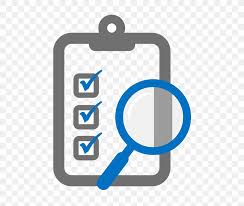Maximizing LinkedIn's Potential: A Strategic Framework for Professional Brand Enhancement
LinkedIn, with its expansive network of over 700 million professionals, presents a unique opportunity for individuals and organizations to cultivate their professional brands, generate leads, and establish thought leadership. This article outlines a comprehensive strategic framework encompassing fifteen key strategies, grounded in relevant marketing and social media theories, for achieving impactful results on this critical platform. We will explore concepts such as goal setting (SMART goals), search engine optimization (SEO), social capital theory, and the diffusion of innovations model to contextualize these strategies within a robust theoretical framework.
Foundation for Success: Goal Definition and Profile Optimization
Before embarking on any tactical implementation, it is crucial to establish clear, measurable, achievable, relevant, and time-bound (SMART) objectives. This process aligns with the SMART goal setting framework, ensuring that efforts are focused and results are readily quantifiable. For example, a marketing agency might aim to generate 50 qualified leads within a two-month period via targeted LinkedIn engagement. This defined goal guides resource allocation and performance measurement.
A meticulously crafted LinkedIn profile acts as a digital storefront. Its optimization is paramount, incorporating relevant keywords throughout the headline, summary, and experience sections to enhance search engine visibility (SEO). This aligns with principles of search engine optimization, maximizing the profile's discoverability within LinkedIn's search algorithms. For instance, a digital marketing manager should strategically embed keywords such as "SEO," "SEM," "content marketing," and "social media strategy" to attract relevant connections. This approach leverages keyword research and strategic placement to improve the profile's organic reach.
Cultivating Engagement and Expanding Professional Networks
Active participation in relevant LinkedIn Groups fosters valuable connections and facilitates knowledge sharing. Social capital theory underscores the importance of building strong networks for professional advancement. A software development firm, for example, could actively contribute to groups focused on agile methodologies, leveraging their expertise in project management best practices to enhance their visibility and credibility within the community. The creation and dissemination of engaging content, such as compelling posts, articles, and videos, is crucial. These content marketing strategies aim to attract, engage, and retain an audience, ultimately driving value and achieving specific objectives.
Consistent engagement is vital for building relationships and boosting visibility. This involves actively liking, commenting, and sharing content from connections. The diffusion of innovations model suggests that early adoption and active participation can significantly increase the reach and influence of one’s content and brand. A social media manager, for example, could add insightful comments on a colleague's post about a new marketing platform, contributing unique perspectives and building stronger connections. LinkedIn advertising, encompassing sponsored content, text ads, and dynamic ads, provides targeted reach to specific demographics, interests, or job titles, aligning with principles of targeted advertising and market segmentation.
Establishing Thought Leadership and Expanding Reach
Thought leadership is cultivated by consistently sharing valuable content that demonstrates expertise and insights. Publishing insightful articles and actively participating in industry discussions establishes credibility. This aligns with the concept of establishing oneself as a key opinion leader (KOL) within one's field. A cybersecurity consultant, for example, could author articles on emerging threats and mitigation strategies, solidifying their authority and attracting a targeted audience. Strategic networking involves connecting and engaging with industry influencers to leverage their established networks and broaden one’s own reach. This collaboration with influencers can significantly amplify the reach and credibility of a message.
Demonstrating success through compelling case studies and testimonials builds trust and credibility. A SaaS company, for instance, might showcase client testimonials highlighting the positive impact of their software. Regular analysis of LinkedIn analytics, encompassing engagement rates, click-through rates, and follower growth, is essential for refining strategy and ensuring optimal performance. This data-driven approach supports continuous improvement and facilitates informed decision-making.
Advanced Strategies for Amplified Impact
Empowering employees to optimize their profiles and share company content significantly increases brand visibility. An HR manager, for instance, could implement training programs focusing on LinkedIn profile optimization and content sharing. Active participation in LinkedIn Events, such as webinars and conferences, provides valuable networking opportunities and enhances brand presence. A marketing team could effectively share conference insights, connect with potential clients, and build relationships with partners.
Utilizing LinkedIn Sales Navigator allows for precise targeting of potential leads via advanced search filters. A B2B sales representative could leverage Sales Navigator to identify key decision-makers within specific target accounts. LinkedIn Live enables hosting engaging live video sessions, fostering real-time interaction and strengthening relationships. A business coach could leverage LinkedIn Live for interactive sessions on leadership development. Finally, competitor analysis provides insights into effective strategies and potential areas for innovation, allowing one to adapt and refine their own approach.
Conclusion and Recommendations
In conclusion, implementing a multifaceted LinkedIn strategy, grounded in the principles of goal setting, content marketing, network building, and data analysis, significantly enhances professional brand building and business outcomes. We recommend a continuous cycle of goal setting, content creation, engagement, and data analysis to optimize performance. The impact of these strategies is demonstrable in increased brand awareness, lead generation, and thought leadership. Further research could investigate the long-term effects of different engagement strategies and the impact of various content formats on audience engagement. This approach fosters a data-driven and iterative process that ensures continuous improvement and maximization of the LinkedIn platform's potential.Reader Pool: What are your perspectives on the relative importance of organic versus paid LinkedIn strategies in achieving specific professional goals?
```



